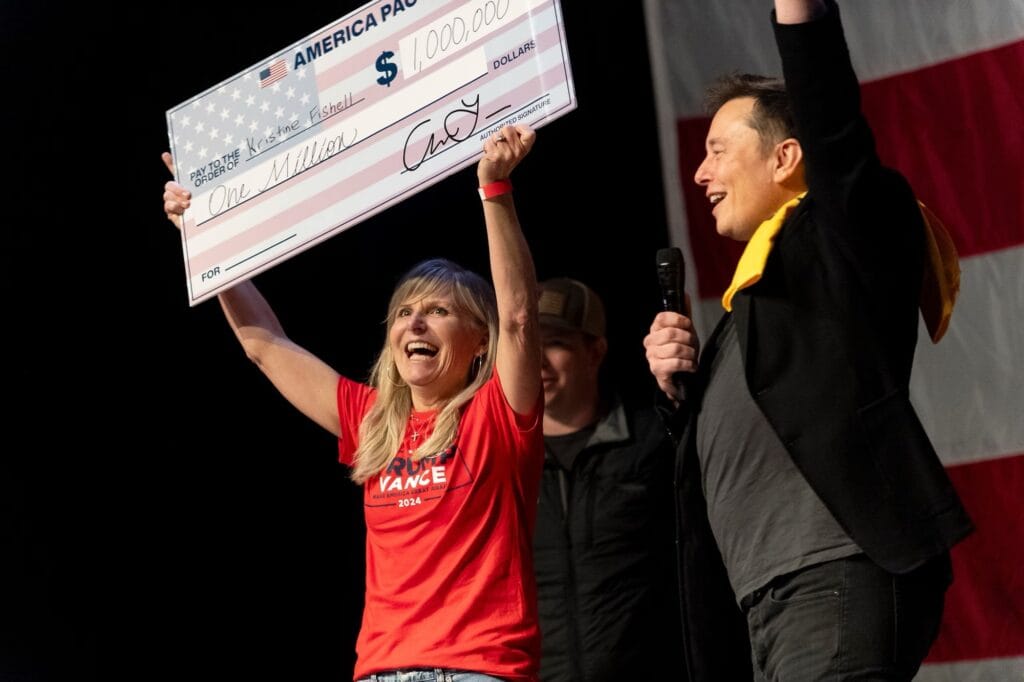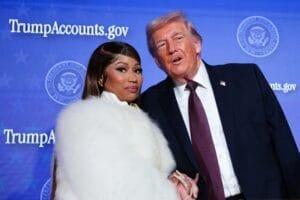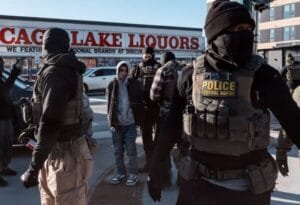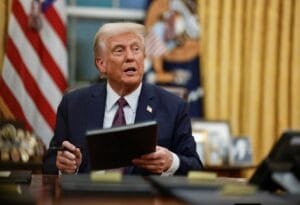Philadelphia sues Elon Musk, calling $1m PAC giveaway “illegal lottery”
Philadelphia District Attorney Larry Krasner filed a lawsuit against Elon Musk, accusing the tech billionaire’s $1 million PAC giveaway of being an “illegal lottery scheme.”

Philadelphia District Attorney Larry Krasner filed a lawsuit against Elon Musk, accusing the tech billionaire’s $1 million PAC giveaway of being an “illegal lottery scheme.” The suit, directed at Musk’s America PAC, alleges that Musk is enticing Pennsylvanians to share personal information and make a political pledge in exchange for a chance to win $1 million — a move Krasner says breaches state law.
According to the Lawsuit, “America PAC and Musk are lulling Philadelphia citizens and others in the Commonwealth (and other swing states in the upcoming election) to give up their personal identifying information and make a political pledge in exchange for the chance to win $1 million,” stated the lawsuit, accusing Musk’s initiative of operating as an “indisputably” illegal lottery.

Pennsylvania law mandates that all lotteries in the state be regulated and managed by the state government. Krasner’s office contends that Musk’s PAC giveaway is unauthorized and falls outside these legal bounds. According to the lawsuit, the giveaway also includes misleading terms, claiming winners are randomly selected, while evidence suggests multiple winners were attendees at Donald Trump rallies.
The lawsuit comes as Musk steps up his pro-Trump campaign efforts in Pennsylvania, a critical swing state with 19 electoral votes. On October 26, he spoke at a town hall in Lancaster, advocating for the former president. On his social media platform, X, Musk claimed a surge in Republican voter registration: “New Republican voter registration last week in Pennsylvania absolutely crushed Democrat voter registration! 27.7k Rep vs 12.7k Dem, a 3X difference.”
Musk’s efforts and the PAC’s activities are also drawing federal scrutiny. The U.S. Justice Department reportedly cautioned Musk that his PAC’s giveaway could violate federal laws prohibiting financial incentives for voter registration.
As Pennsylvania remains a pivotal battleground ahead of the November 5 election, this lawsuit introduces fresh legal questions surrounding campaign tactics and digital privacy, with the final decision holding implications for voter influence strategies across the country.














